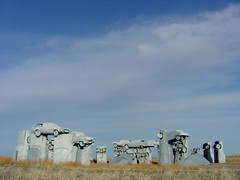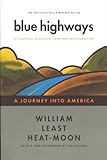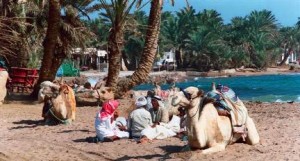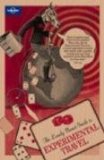Tourism and mental baggage
Travel is an odd business. The more you think about it the odder it can seem.
We all ‘get’ the idea that it’s supposed to be ‘enriching’ and ‘inspirational’ but we actually arrive at a new city with a whole trolley-full of mental baggage. After all, that’s why we bought the ticket to that particular destination in the first place…
We bought a ticket to Marrakesh with a dim memory of Laurence of Arabia, we bought a ticket to New York with a mental picture of 5th Avenue brownstones and glitzy department stores, we bought a ticket to Paris to marvel at French women who were so immaculately turned out they modelled their facial expressions for the benefit of passers-by (or some of us did).
Authenticity
We think we are searching for something ‘different’, something ‘exotic’ but we are also searching for something that is the same as our preconceptions. We want something that is authentically a close match to movies, books, or just to match some vague recollection of an intriguing relative who once lived there.
There is an also an industry (the travel industry) that sells us authenticity by the bucketload and in the process destroys something (albeit something that actually was probably never there in the first place).
Lonely Planet had a nice little writeup of a page or so on an ‘unspoilt’ beachside town in the Sinai called Dahab where you could get fish cooked on an open fire. A year or so later (see photo at right) and it could pass for any Mediterranean resort. 
It can all be quite annoying this dearth of local authenticity.
There you are, sitting on Dizengoff Street in Tel Aviv in a building that smells more of Cairo than it does of Europe, and a car cruises past outside playing the same song that you were listening to in London 12 hours earlier. Why bother coming?
You go to Australia with an image in your mind of wide-open spaces and people in Akubra hats on horseback with corks hanging from them (the hats I mean). How trying is it that a higher proportion of the population lives in the densely populated urban coastal fringe than in the UK, or that Australians are the highest per capita consumers of books in the English speaking world?
Re-framing of tourist destinations by travellers
At a literal level we tend to simply re-frame our travel destinations to ignore those parts of foreign cultures or experiences that are inconsistent with our preconceptions.
We arrive at a place and we immediately begin looking for the vantage point for the ‘perfect’ shot (an artist I know refused to travel with a camera when she realized she was doing this).
Framing can be as simple as choosing to photograph iconic sights to exclude  inconvenient objects in the foreground like hotdog stands or whole cities (don’t tell me you weren’t surprised to find the pyramids ensconced in a suburb of Cairo rather than the open desert), or it can be as complex as creating theme parks like Disney World where you can experience all the cliches of foreign countries without ever leaving your own.
inconvenient objects in the foreground like hotdog stands or whole cities (don’t tell me you weren’t surprised to find the pyramids ensconced in a suburb of Cairo rather than the open desert), or it can be as complex as creating theme parks like Disney World where you can experience all the cliches of foreign countries without ever leaving your own.
Travel ‘orientation stress’ and travel ‘option stress’
We shouldn’t blame Disney World or package tours for trying to make things easy.
In parts of Oklahoma where I lived for a while it was pretty unlikely that you had been out of the state (Texas being the possible exception), travelling to the east or west coast was considered really avant-garde, and leaving the country was unheard of (estimates of the number of Americans holding passports seem to range between about 7% and 20%).
Travelling imposes ‘orientation stress’ as we try and get used to different languages, currencies, geography and transport modes. Worst of all we’ve got to make decisions about what we see every day (for an ‘all option evaluator’ such as myself who has understand the full gamut of choices before making one this is terrifying) aka ‘option stress’.
Buy your $1000 airfare & I’ll sell you a blindfold to wear on your trip
And thus we come to the travel guide, a way of reducing both our option and orientation stress. It tells you a) what to ‘see’ (because travel is like… errr … a visual experience apparently) and b) how to get there.
Problem solved?
Well … errr… no. As a friend of mine notes there is a very good case for banning travel guides. Right now, in the southeastern quarter of Barcelona, 7 people are standing in a queue outside a bicycle rental shop clutching a heavily-thumbed book noting to ask for Peter, their experience of the city completely mediated by a red travel guide with a million print run and a few Almodavar films. All big cities are now for sale to anyone without making any more effort to communicate than that involved in forking out 10 bucks for a copy of ‘Let’s Go’, or the Rough Guide.
Sure you’ll ‘see’ a bunch of sites but not have to make the effort to communicate with the locals to find them, or even understand what the locals themselves recommend (hotel concierges excluded). When was the last time you went round the top 3 tourist spots in your own city in a day? Most of us would rather eat sand.
The travel guide is just a further disconnect that robs you of any understanding of the place and culture at which you’ve arrived. Increasingly you get there by plane in an experience that is like timetravel- you wake up in a different timezone after being shut in a metal tube with no context of how you got there.
And even for the ‘independent‘ traveller once you arrive at an airport there is often the temptation to book hire-cars and negotiate freeway systems that use largely the same conventions the world over. The old question of the journey or the destination comes to mind: getting from point A to point B the fastest stops you developing a gradual understanding of the differences between them, like negotiating a city by bicycle as opposed to taxi (you have not experienced Shanghai for example until you’ve got on a subway train simply because a lot of western tourists never go near it).
It gets worse. Technology is rapidly reducing the amount of interaction you have with locals even further. Why not load an audio description of the city before you go from hearplanet.com so you don’t actually have to hear anything; why not look up your current location on your GPS phone so you don’t have to ask directions when you’re lost?
If you didn’t photograph, blog & twitter it you were never here
“From that time on he began to pay careful attention to all his thoughts and ideas, and to admire them. For example, it occurred to him that if he were to die the world in which he had been living would cease to exist.”
Milan Kundera – Life Is Elsewhere
Try meeting someone in a hostel these days who is available for conversation and not a) tapping away at a laptop or b) sitting in a corner with headphones on listening to MC Hammer. Want a list of the electronic devices for today’s traveller ? It will take up quite a chunk of your weight allowance.
Because, as we all know, travel is about documenting it. It used to be done with a couple of postcards and a camera but now we must emulate our travelling literary heroes ranging from Jack Kerouac to Alex Garland. It’s so darn busy there’s barely time to read a novel by a local author…
Travel is also about self-discovery and we need a diary to do that. It’s not just about ‘seeing things’ it’s about ‘getting away from me’. We all have met f**ked up people in hostels ranging from young foreign Zionists in Israel to I-participate-in-medical-experiments in Denver. So many travellers out there are just getting away from a bad relationship or some other huge negative in their life; the cheaper the destination the worse the problem they’re trying to overcome. We have all in the active or passive voice been part of a conversation where we explain to a boyfriend or girlfriend that … cough … “it’s just not a good idea you join me here …” Yep, it is difficult to be with you, whom I have known for years, when I am trying to reinvent myself.
It’s not that we don’t all have a travel story to tell but it’s also the case that (because of many of the reasons above like travel guides) we also all often have the same story. We’ve been to the same must-see places, been ripped off by the same vendors, and have the same bank balance damage to show for it.
New ways to understand travel
Ok, it’s not the end of the world. It’s hard to buy an argument that people who travel or live outside their own culture “is bringing with it the condition that the Greeks called ‘anomie’, the losing of all moral and social guidelines to behaviour that go witha traditional way of life.‘ (in a delightful irony I read that a couple of years ago in a Virgin travel magazine). Travel probably does make you more tolerant of ‘difference’ but it seems to be the case that travelling as a recreational activity might seriously benefit from being re-thought.
Otherwise we have knowledge but not understanding of where we’re going.
 Maybe the answer is couch surfing? Maybe it is thinking more about how we move from place to place as in ‘Blue Highways’?
Maybe the answer is couch surfing? Maybe it is thinking more about how we move from place to place as in ‘Blue Highways’?
Maybe it’s the new “experimental travel” genre, where destinations are picked with dice, hitchiking, exploring suburbs rather than city centres, or variations?
Maybe we even should envy my work colleague’s father who is British and has never been on holiday anywhere further than Wales (no airline related carbon footprint issues there!). Isn’t it good that he’s happy with himself and his own surroundings – what more could we all wish for?
What do you think the answer is? It would be genuinely good to know.
This article filed under the following 'Interest' categories (click category for more) Hate pets



I agree. My travel guide works in any town. Step out of hotel and turn right (or left). Continue until time to come back. Repeat the next day.
This is the first time I’ve seen it described so well and in detail to understand what is going on. I belong to ADVrider, a motorcycle web group that posts pictures and stories of travel and adventure for motorcyclists. I never understood why so many riders were able to find the perfect ride and travel pictures. Seems like they knew something that I didn’t. My rides were of remote places too, close to home but never as adventurous or as picturesque as theirs. I now understand that most of the pizazz is about the right photo angle and the accumulation of insignificant events. Here I was thinking that my adventures were of no interest to anyone and I now understand it is all about presentation. I will continue to carry my camera but not feel the need to document anything unless it is of real interest to anyone. Good article.
Got involved in an argument about linking to this article as ‘non-authoritative’ and did some further research.
There are figures available from Publisher’s Weekly (http://www.publishersweekly.com/article/CA6302533.html) which put annual english language Guide sales at 24 million copies. If you factor in people travelling together and people using older guide versions that’s a lot of people.